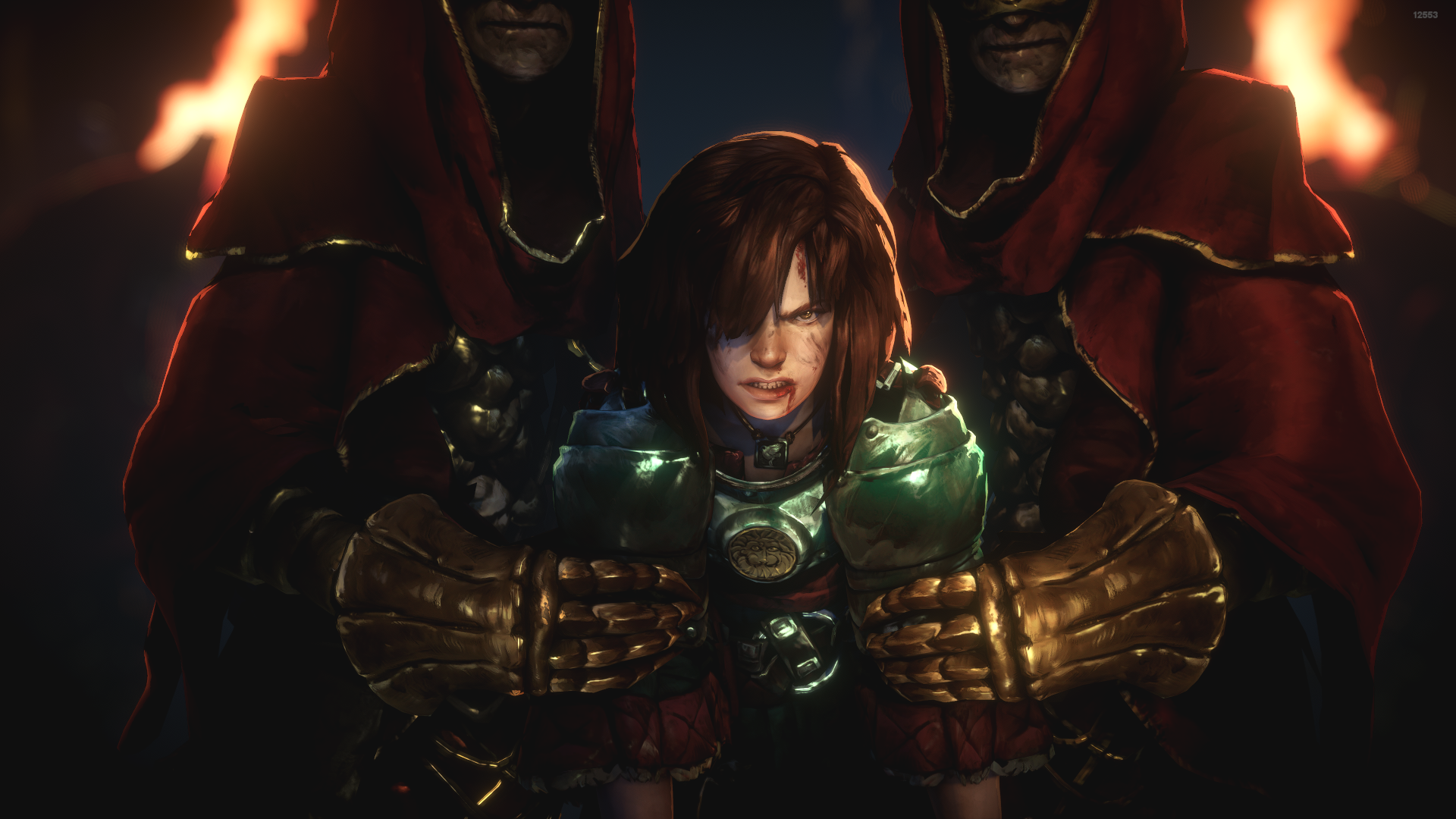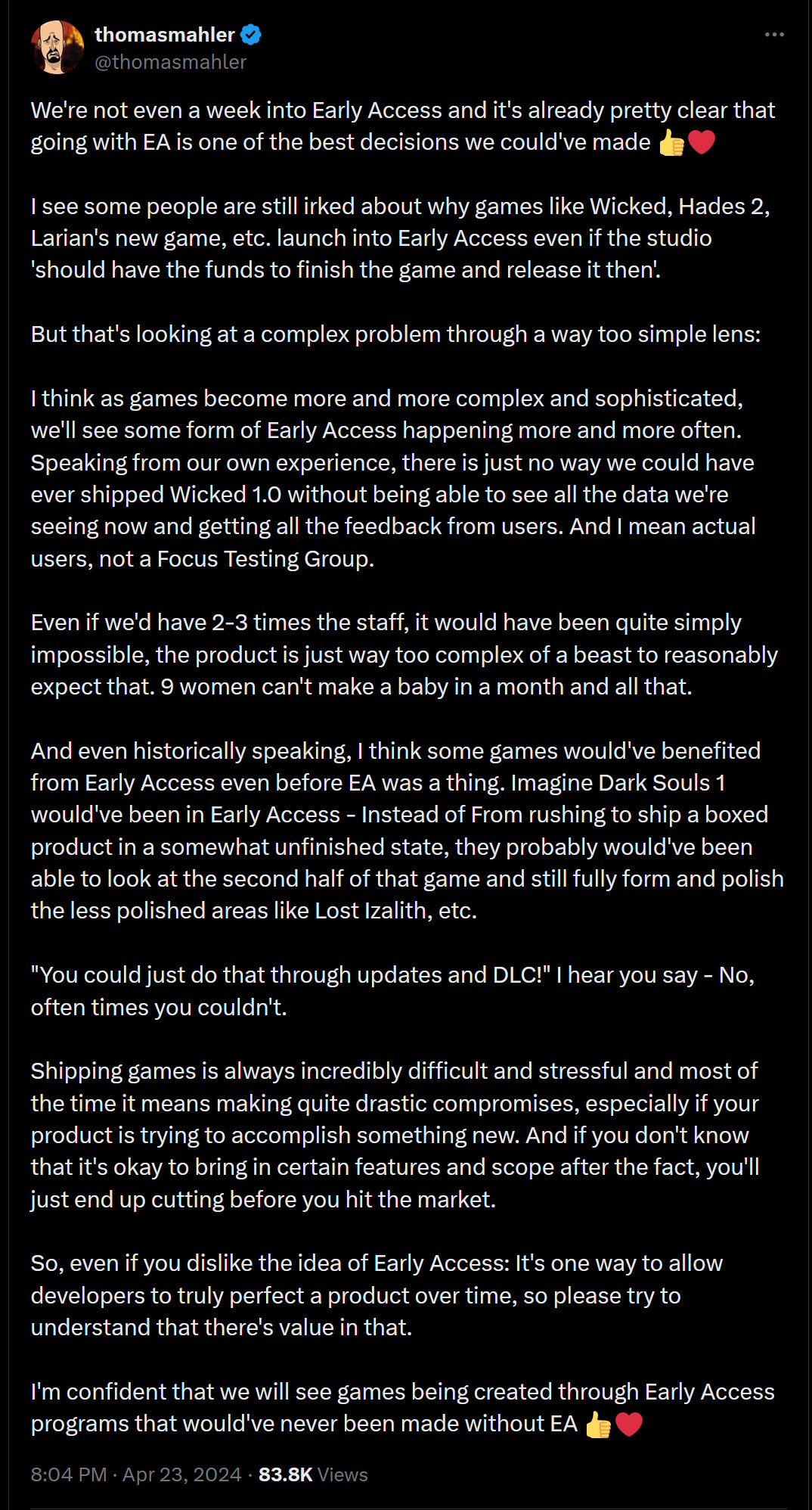
No Rest for the Wicked, the action RPG from Ori and the Blind Forest developer Moon Studios, launched into early access on Steam last week, and it's really quite good. Not everyone is entirely taken with it, though: An awful lot of negative reviews flowed in immediately after release, complaining about a raft of issues including performance, balance, and an overall lack of polish.
Moon Studios quickly responded to those complaints with an update promising improvements are on the way. "This is early access, so there is plenty you will see improve as we continuously look to optimize and improve the game with your feedback," the studio said.
Even before it came out, some players expressed concerns about No Rest for the Wicked going into early access in the first place—mainly wondering about how "early" the game would be—and post-launch there have been suggestions the game wasn't ready even for an early access release. For the most part, though, players seem to be digging it, as seen in the game's climb from a "mixed" to "mostly positive" rating over the course of a week.
Regardless of all that and whatever anyone else might think about it, Moon Studios CEO and creative director Thomas Mahler has no regrets, calling the early access release "one of the best decisions we could've made."
"I see some people are still irked about why games like Wicked, Hades 2, Larian's new game, etc. launch into early access even if the studio 'should have the funds to finish the game and release it then'," Mahler wrote on Twitter. "But that's looking at a complex problem through a way too simple lens.
"I think as games become more and more complex and sophisticated, we'll see some form of early access happening more and more often. Speaking from our own experience, there is just no way we could have ever shipped [No Rest for the] Wicked 1.0 without being able to see all the data we're seeing now and getting all the feedback from users. And I mean actual users, not a Focus Testing Group. Even if we'd have 2-3 times the staff, it would have been quite simply impossible, the product is just way too complex of a beast to reasonably expect that. 9 women can't make a baby in a month and all that."
Mahler went even further, saying other games that came out before early access existed would've been better if they'd been able to take advantage of it: "Imagine [if] Dark Souls 1 would've been in Early Access—Instead of From rushing to ship a boxed product in a somewhat unfinished state, they probably would've been able to look at the second half of that game and still fully form and polish the less polished areas like Lost Izalith, etc."

Generally speaking, I tend not to play early access games—I'd rather wait for the full, finished product—and I wonder if studios sometimes hurt their future fortunes by releasing a game before it's fully ready: Nightingale is one example of an anticipated and promising game that's currently saddled with a "mixed" rating on Steam because it's still in development.
But the advantages are also clear. As Mahler said, early access provides a pool of testers that just isn't available any other way, and the success of games like Baldur's Gate 3, which spent nearly three years in early access, is proof that it can work. Conversely, the failure-to-fame arc of Cyberpunk 2077 has led to suggestions that it should've been an early access game (and, in some ways, it was).
The bottom line is that there's clearly a place for early access in the contemporary gaming market, and it's not going away, a point Mahler emphasized. "Even if you dislike the idea of Early Access: It's one way to allow developers to truly perfect a product over time, so please try to understand that there's value in that," he wrote. "I'm confident that we will see games being created through Early Access programs that would've never been made without EA."
Mahler also encouraged Sony and Nintendo to "embrace early access" in a follow-up tweet. "The industry is just changing at a rapid pace and holding on to things that were the norm 5-10 years ago is too restrictive," he wrote.
"Ultimately people just want to play great games. It shouldn't matter how the game was developed, just that it was and if players can't play some great experience on your platform, you're doing your audience a disservice."
For now, work on No Rest for the Wicked is continuing at a good pace. Four hotfixes, focusing primarily on addressing performance and balance issues, have already been released since the game's April 18 launch.







